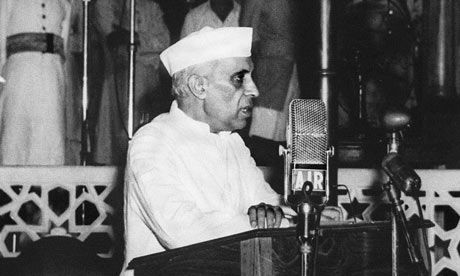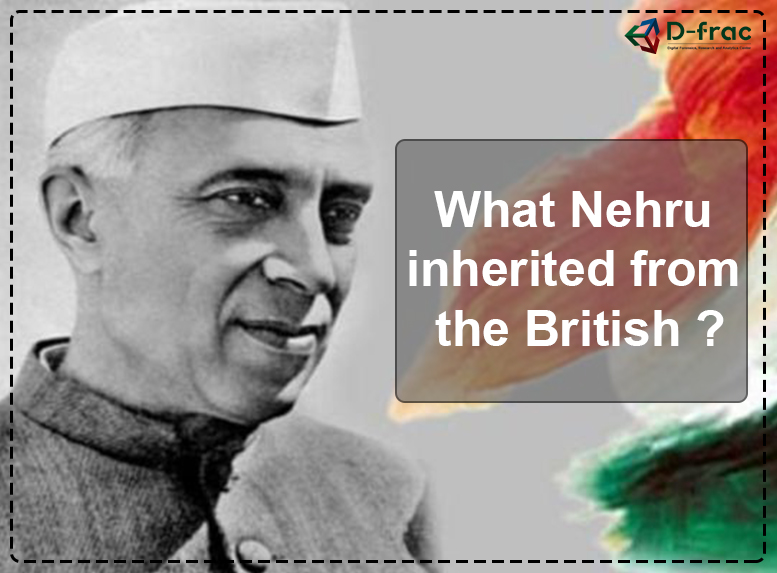On July 31, 2021 Madhya Pradesh’s Minister for Medical Education when asked about the inflation in the country said the following:
Sarang blames Nehru and his entire family for inflation happening today and claims that inflation has been on the rise since Nehru delivered a speech on the Red Fort on 15th August,1947.
Fact Check:
Firstly, let’s fact check this statement, Nehru never delivered a speech on the Red Fort on August 15. His famous speech “Tryst with Destiny” was actually given on August 14, 1947 in the Indian Constituent Assembly. So Mr. Sarang’s claims here are pretty much false.

The state of the country after the British left
The Independence of India brought joy to every Indian 75 years down the line, very few remain who remember what the partition was like and in addition to the freedom, just how bad the country’s shape was. India’s development was terribly neglected by the British for 200 years. The country’s first Prime Minister, Pandit Jawaharlal Nehru inherited the mammoth task of not only reviving the country but also maintaining the democratic standards he stood by all his life.
So, what did Nehru inherit from the British? The numbers are absolutely staggering.
Independence Day came with the Partition of the Indian subcontinent into India and Pakistan where 14 million refugees were displaced and the country erupted in mass communal violence.
Half of India’s population lived below the poverty line. India also had a massive illiteracy problem because the British never really bothered to educate their subjects. India’s literacy rate after Independence was merely 18%. More than 80% of the country’s population was illiterate.
On top of these already concerning figures, Bengal suffered a devastating loss when over 3 million people died of a famine that is largely attributed to Winston Churchill’s refusal to divert food to the region.
India’s global market share was down from 30% during the Mughal period to barely 4% after the British left. The degree to which Britain exploited India is unfathomable in this day and age.
Nehru inherited only pain and suffering from the British. Everyone expected the country to fail the experiment of democracy but Nehru’s will to travel to all corners of the country to raise awareness proved more than fruitful in performing the largest experiment of democracy in the whole world.
Nehru’s policy of non-alignment helped saved India from being indebted to other countries. A newly independent India lacked any and all industrial good to manufacture and produce goods. Over 90% of all equipment had to be shipped from overseas. This however did not sit-well with Nehru who wanted India to be independent of all colonizers. Nehru fast tracked steel production and encouraged the growth of manufacturing industries. By 1960, this dependence on foreign countries was reduced to 45%. And by 1974, it was only 4 %.

Nehru’s policy of a mix between socialism and capitalism which encouraged not only public but private industries helped India become a fast growing economy, bypassing China, Japan and the UK in 1962.
There was a growing sense of communal disharmony and lack of connectedness between the literate city intellectuals and those residing in villages. Nehru tackled these with making sure that India remains a secular country with all its diversity and empowered the people in the villages with the Panchayati Raj System.
From a country which has to import 14 million tonnes of food due to scarcity in 1947, Nehru laid down the groundwork through establishing dams, procuring chemical fertilizers and electricity for India to eventually have a food surplus in the 70s.
To tackle the fact that only 18% of India’s population was literate, Nehru stuck to his promise of providing universal free primary education and set up institutions such as IITs and AIIMs to further the advancement of science.
Despite all the recent criticism the Nehruvian years have incurred, his years of governance and leadership are a textbook example of a time when intellectual and economic independence were just as important as political independence.





